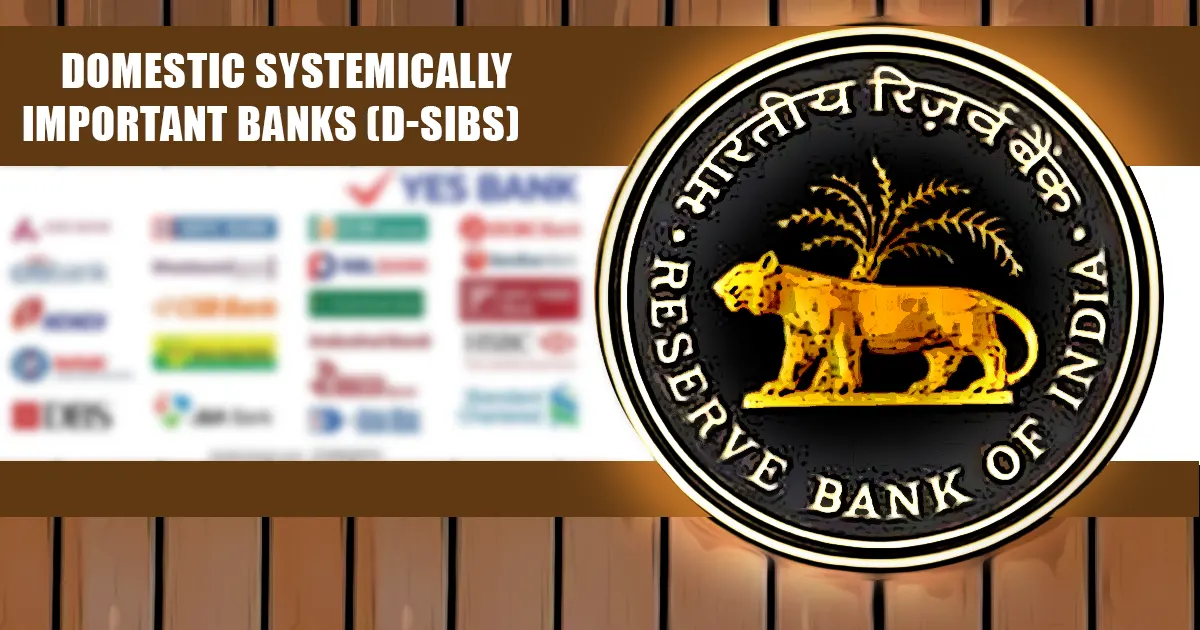
Context
The Reserve Bank of India (RBI) has retained State Bank of India (SBI), HDFC Bank, and ICICI Bank as Domestic Systemically Important Banks (D-SIBs) for 2023.
What Are D-SIBs?
- Definition:
D-SIBs are banks whose failure could severely disrupt the financial system and economy due to their:- Size
- Complex operations
- Cross-jurisdictional activities
- Lack of alternatives (substitutability)
- Interconnectedness with the financial ecosystem
- ‘Too Big to Fail’ (TBTF):
These banks are deemed crucial to economic stability, requiring special regulatory oversight to prevent collapse.
RBI’s Framework for D-SIBs
- Implementation:
- Introduced in 2014 and implemented from 2015.
- Based on global standards by the Basel Committee on Banking Supervision (BCBS).
- Assessment Method:
- RBI evaluates banks annually using their Systemic Importance Scores (SISs).
- SIS reflects a bank’s significance in the financial system and determines its risk bucket.
- Capital Surcharge:
- D-SIBs are required to maintain additional Common Equity Tier 1 (CET1) capital to enhance their resilience.
- Higher risk buckets attract higher capital surcharges.
- Global Impact:
- If a foreign bank with Indian branches is designated as a Global Systemically Important Bank (G-SIB), it must maintain an additional CET1 surcharge proportional to India-specific Risk-Weighted Assets (RWAs).
Current D-SIBs in India
- State Bank of India (SBI)
- HDFC Bank
- ICICI Bank
Significance of D-SIB Designation
- Financial Stability:
Ensures these critical banks maintain higher resilience against economic shocks. - Enhanced Oversight:
Promotes rigorous regulatory supervision to reduce systemic risks. - Market Confidence:
Builds trust among depositors and investors in the stability of these institutions.
Challenges for D-SIBs
- Higher Compliance Costs:
- Stricter capital and operational requirements.
- Moral Hazard:
- Perception of implicit government support could encourage riskier behavior.
- Operational Complexity:
- Managing cross-border regulations and interconnected operations.




